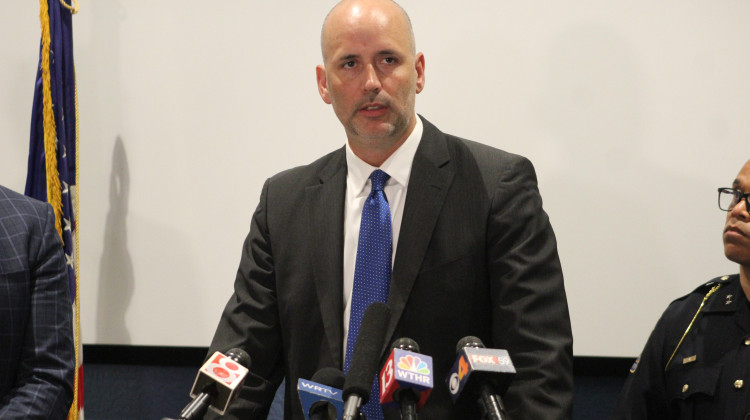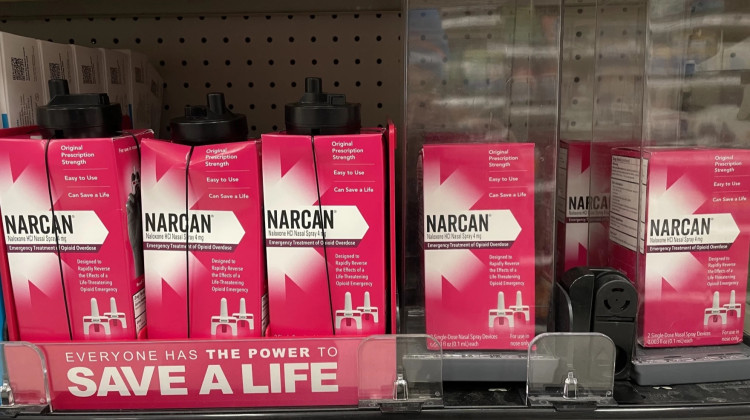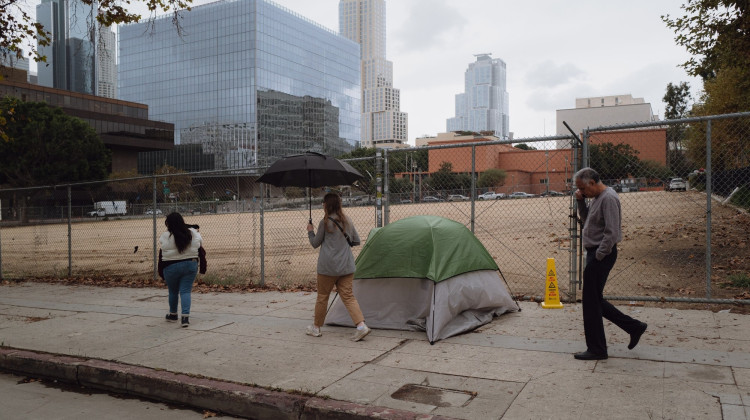
Marion County Proscecutor Ryan Mears discusses an uptick of charges against dealers whose clients have died due to a drug overdose.
Ben Thorp / WFYIThe Marion County Prosecutor’s office says that housing instability is a major problem for individuals and families involved with the criminal justice system. A new collaboration between the Marion County Prosecutor’s Office and a local Indianapolis homeless center aims to address this.
By using a nearly $250,000 grant from the Indianapolis Foundation’s Elevation Grant Program, the goal is provide financial support for stable housing and access to wraparound services for individuals and families involved in the criminal justice system.
Officials hope it will also reduce recidivism and keep people out of the criminal justice system.
Over the next year, Horizon House, a non-profit homeless center in Indianapolis, will partner with the Marion County Prosecutor’s Office, the Marion County Public Defender Agency, and HealthNet’s Homeless Initiative Program.
“We really do feel that we can stop the cycle of recidivism if we're able to go through this housing-first model of getting people into housing and getting people access to other support services that can hopefully help them turn things around,” said Marion County Prosecutor Ryan Mears.
At Horizon House, roughly 30% of the people they serve have self-reported that they have a felony. Leslie Kelly, director of programs Horizon House, suspects the number is even higher once accounting for misdemeanor arrests and convictions.
It can be difficult for people involved in the criminal justice system to reenter the workforce, find transportation or receive help from other financial support systems, such as family and friends. That makes it even harder for people to maintain housing.
“Even if you get a job, are you making enough money to afford the price of housing today and do you have enough money saved up to pay a security deposit,” Kelly said. “All of those costs have been skyrocketing, not only in Indianapolis, but across the nation.”
The housing shortage has made it even more difficult to find affordable units with multiple bedrooms, making it especially difficult to house women and children. That group is one of the fastest growing populations experiencing homelessness nationwide.
Now the county prosecutor's office will refer lower level offenders to Horizon House so they can be considered for the pilot program.
The program starts by encouraging people to utilize their personal networks for short term housing. Then at least 30 individuals or families will receive financial support and wraparound services from HealthNet’s Homeless Initiative Program as they wait for permanent housing.
Selected participants can receive funding to help with some immediate housing costs, such as payment for a security deposit or first month's rent. If someone is staying at the residence of a family member or friend, the funds can pay for household expenses like electricity or gas bills, bus passes and food.
“It not only creates a pathway to permanent housing for that individual or family, it can help divert [them] out of the shelter system,” Kelly said. “The emergency shelter system, particularly for families, is always operating at capacity in Indianapolis.”
The amount of funding an individual or family can receive will be determined on a case by case basis. Kelly said the goal is that at least 30 of those individuals or families have a housing solution by the end of the grant.
The Homeless Initiative Program is in the process of hiring a full-time and part-time staff member. Once they are hired and trained, Kelly hopes the team will begin helping program referrals by the end of the year, and continue the program after the pilot.
Contact WFYI’s health reporter Elizabeth Gabriel at egabriel@wfyi.org
 DONATE
DONATE







 Support WFYI. We can't do it without you.
Support WFYI. We can't do it without you.